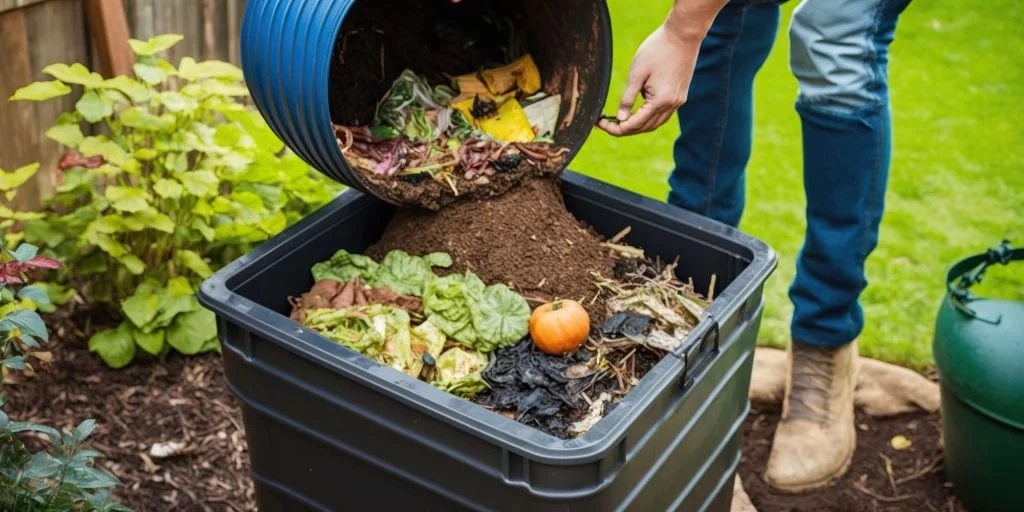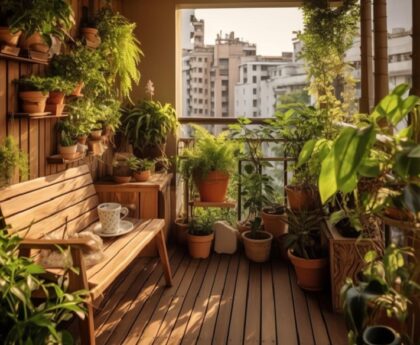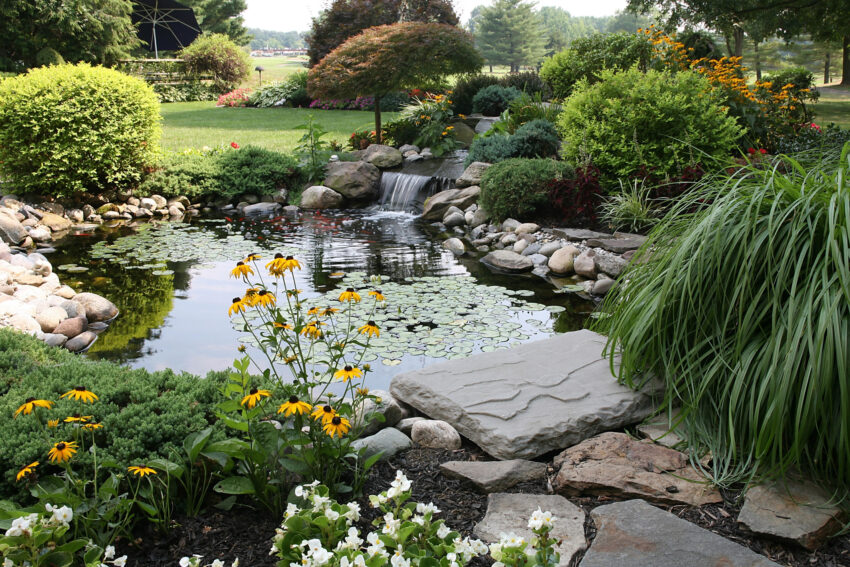Have you ever wondered where your vegetable peels, eggshells, and coffee grounds go after they disappear down the garbage disposal? Most end up in landfills, decomposing slowly and contributing to methane emissions. But what if you could transform this waste into a valuable resource for your garden? Enter composting – a natural process that breaks down organic matter into a nutrient-rich soil amendment, aptly named “black gold” by gardeners worldwide.
The Allure of Composting: A Sustainable Cycle
Composting offers numerous benefits for both you and the environment:
- Reduced Waste: Composting diverts organic waste from landfills, minimizing methane emissions and promoting a more sustainable lifestyle.
- Nutrient-Rich Soil Amendment: Compost feeds the soil with essential nutrients, promoting healthy plant growth and reducing your reliance on chemical fertilizers.
- Improved Soil Structure: Compost acts like a sponge, improving soil aeration and drainage, leading to healthier and more resilient plants.
- Water Conservation: Compost helps the soil retain moisture, reducing the need for frequent watering.
- A Closed-Loop System: Composting creates a closed-loop system, allowing you to turn kitchen scraps into nutrient-rich food for your plants, ultimately nourishing the soil that grows more food – a beautiful cycle of sustainability.
Composting 101: Understanding the Basics
Composting relies on the breakdown of organic matter by microorganisms like bacteria and fungi. To create an optimal environment for these decomposers, you need to consider two key elements:
- Brown Materials: These are dry and carbon-rich materials like dead leaves, twigs, shredded cardboard, or straw. They provide structure to the compost pile and energy for the microorganisms.
- Green Materials: These are moist and nitrogen-rich materials like vegetable scraps, fruit peels, coffee grounds, and tea bags. They provide nutrients for the microorganisms and contribute to the decomposition process.
Building Your Compost Bin: Choosing the Right System
There are numerous composting systems available, catering to different needs and space limitations. Here are some popular options:
- Compost Bin: A simple and affordable option for urban dwellers. Choose a bin with proper ventilation to allow air circulation and prevent odors.
- Compost Tumbler: These rotating bins make composting easier by allowing you to tumble the contents occasionally, accelerating the decomposition process.
- Compost Pile: The classic outdoor method. Choose a well-aerated location and layer your brown and green materials to create a balanced pile.
Composting Essentials: Creating the Perfect Recipe
Now that you have your bin, let’s delve into the nitty-gritty of creating a thriving compost pile:
- The Brown and Green Ratio: Aim for a 3:1 ratio of brown to green materials. This balance ensures optimal moisture levels and provides the right amount of carbon and nitrogen for efficient decomposition.
- Chopping Up Materials: Chop your kitchen scraps and other organic materials into smaller pieces to facilitate faster decomposition.
- Moisture Management: The compost pile should be moist but not soggy. Add water if the pile feels dry and turn it occasionally to aerate the materials and maintain moisture levels.
- Knowing What Not to Add: Avoid adding meat scraps, dairy products, bones, or oily materials to your compost pile. These can attract pests and create unpleasant odors.
Troubleshooting Your Compost Pile: Common Challenges and Solutions
- Odors: If your compost pile smells bad, it’s likely too wet or lacking oxygen. Turn the pile more frequently and add brown materials to absorb excess moisture.
- Slow Decomposition: A lack of nitrogen or moisture can slow down the process. Add green materials or ensure the pile is adequately moist.
- Pests: Fruit flies or other insects might be attracted to your compost pile. Ensure you’re not adding meat scraps or other attractants, and bury food scraps in the center of the pile.
Composting Beyond the Basics: Advanced Techniques
Once you’ve mastered the basics, you can explore more advanced techniques to optimize your composting process:
- Worm Composting (Vermicomposting): Utilizing worms to break down organic matter. This method creates a nutrient-rich compost tea that can be used as a liquid fertilizer.
- Bokashi Composting: An anaerobic composting method that utilizes a special container and specific bran mixture to accelerate decomposition.
- Sheet Composting: A lasagna-like layering technique with alternating brown and green materials, ideal for smaller spaces.
From Kitchen Scraps to Garden Gold: The Reward of Composting
Composting may seem like a simple process, but it’s a powerful act of sustainability. By transforming kitchen scraps into nutrient-rich compost, you’re not just reducing waste,
you’re nurturing your garden with a natural and powerful soil amendment. Witnessing your plants thrive on homemade compost is a deeply rewarding experience, fostering a deeper connection to the natural world and the closed-loop cycle of life.
Composting: A Community Endeavor
Composting isn’t just a solitary activity; it can be a community effort. Many communities have community composting programs that offer residents convenient drop-off locations for kitchen scraps and yard waste. These programs then create large-scale compost that benefits local parks or community gardens. Additionally, some neighborhoods organize composting workshops or share resources to support residents in their composting journeys.
Related: Taming the Weeds: A Guide to Using Landscape Fabric in Your Garden
Embrace the Journey: Start Composting Today!
Composting may seem intimidating at first, but it’s a surprisingly easy skill to master. Start small, with a basic bin and readily available materials. As you gain confidence, you can explore different techniques and expand your composting knowledge. Remember, the composting journey is an ongoing process of learning and refinement.
Embrace the joy of transforming kitchen scraps into “garden gold.” Start composting today and witness the magic of enriching your soil, reducing waste, and nurturing a thriving garden – all in a sustainable and environmentally friendly way!






